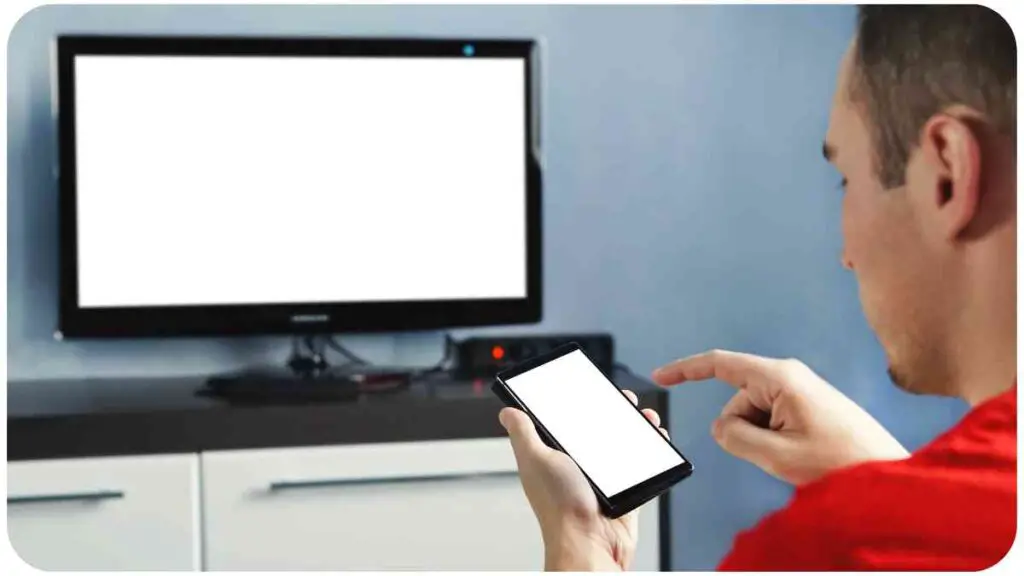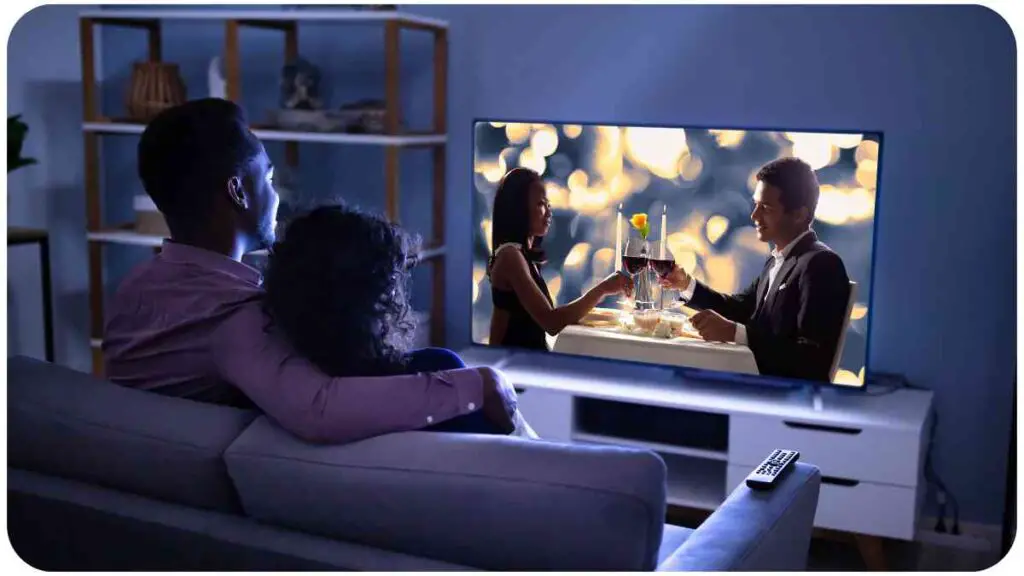Have you ever wondered if Roku TVs have Bluetooth capabilities? In this comprehensive guide, we will explore the answers to your questions and shed light on all aspects of Bluetooth connectivity on Roku TVs. Whether you’re considering purchasing a Roku TV or already own one, understanding its Bluetooth functionality can enhance your viewing experience.
We will delve into the fundamentals of Bluetooth technology, its compatibility with Roku TVs, the process of pairing devices, troubleshooting common issues, as well as the advantages and limitations of Bluetooth on Roku TVs. Let’s get started!
| Takeaways |
|---|
| Roku TVs generally support Bluetooth connectivity. |
| Bluetooth allows you to connect wireless headphones and speakers for a more personalized audio experience. |
| Pairing Bluetooth devices with Roku TVs is a straightforward process. |
| Troubleshoot Bluetooth issues by ensuring proximity, battery life, and software updates. |
| Bluetooth on Roku TVs has advantages like wireless audio and flexibility, but also limitations like range and audio delays. |
| Alternatives to Bluetooth include Roku wireless speakers, HDMI ARC, and optical audio connections. |
| Familiarize yourself with Roku TV model specifications to ensure Bluetooth compatibility. |
| Bluetooth is primarily used for audio connections, not screen mirroring, on Roku TVs. |
| Further reading resources provide more detailed information on Bluetooth functionality. |
| FAQs cover common questions regarding Bluetooth on Roku TVs. |
2. Understanding Roku TVs
Before we embark on our exploration of Bluetooth on Roku TVs, let’s briefly understand what Roku TVs are. Roku TVs are a smart TV platform developed by Roku Inc., which integrate streaming services and allow users to access a wide range of content directly from their television.
With their user-friendly interface and extensive library of streaming channels, Roku TVs have gained popularity among consumers seeking a seamless entertainment experience.
3. Bluetooth Technology Explained
To fully grasp how Bluetooth works with Roku TVs, let’s delve into a simplified explanation of Bluetooth technology. Bluetooth is a wireless communication standard that enables the exchange of data over short distances between various electronic devices.
It operates on radio waves and utilizes low-power consumption, making it ideal for connecting devices such as smartphones, headphones, speakers, and even smart TVs.
4. Roku TVs and Bluetooth Connectivity

Now that we have a basic understanding of Bluetooth, let’s explore its compatibility with Roku TVs. The majority of Roku TVs do support Bluetooth connectivity, allowing users to connect compatible devices. By establishing a Bluetooth connection, you can wirelessly pair your headphones or speakers with your Roku TV, enhancing your audio experience.
Exploring the realm of LG TVs and Bluetooth unveils fascinating possibilities. From smart features to connectivity options, discover how LG TVs embrace the wireless era with innovation and convenience.
Below is a table that lists some popular Roku TV brands and models that offer Bluetooth capabilities:
| Brand | Model |
| TCL | 43S425, 55S425 |
| Hisense | 50R7F, 65R7F |
| Sharp | LC-32LB601C |
Note: This table provides a sample of Roku TV models that support Bluetooth. Please refer to the specific model’s documentation or manufacturer’s website for detailed information.
5. Pairing Bluetooth Devices with Roku TVs
To connect your Bluetooth-enabled devices, such as headphones or speakers, to your Roku TV, follow these simple steps:
- Turn on your Bluetooth device and ensure it is in pairing mode.
- On your Roku TV, navigate to “Settings” and select “Remotes & devices.”
- Choose “Bluetooth” and select “Pair device.”
- Your Roku TV will start scanning for available devices. Once your device appears on the list, select it to initiate the pairing process.
- If prompted, enter the PIN or follow any additional instructions specific to your device.
Once the pairing process is complete, you can enjoy your favorite TV shows, movies, and music through your Bluetooth-connected devices.
Ever wondered about your television’s power appetite? Gain insight into television power consumption and understand the electrical hunger of your device, empowering you to make energy-efficient choices for your entertainment setup.
6. Troubleshooting Bluetooth Issues on Roku TVs

While Bluetooth connectivity on Roku TVs is generally seamless, occasional issues may arise. Here are some troubleshooting tips to help you resolve common Bluetooth issues:
- Ensure that your Bluetooth device is within close proximity to your Roku TV.
- Make sure both your Bluetooth device and Roku TV have sufficient battery life.
- Restart your Roku TV and Bluetooth device.
- Unpair and re-pair your Bluetooth device on your Roku TV.
- Check for software updates for both your Roku TV and Bluetooth device.
- If all else fails, referring to the user manual or contacting customer support can provide additional assistance.
By following these troubleshooting steps, you can quickly resolve most Bluetooth-related issues on your Roku TV.
7. Advantages of Bluetooth on Roku TVs
Bluetooth connectivity on Roku TVs offers several advantages to enhance your viewing experience. Here are some notable benefits:
- Wireless Audio: With Bluetooth, you can enjoy wirelessly connected headphones or speakers, allowing for a personalized, immersive audio experience.
- Flexibility: Bluetooth connectivity provides the flexibility to use your Roku TV without disturbing others. You can watch movies or listen to music late at night without disturbing your sleeping family members or neighbors.
- Easy Installation: Pairing Bluetooth devices with Roku TVs is a straightforward process that can be completed in just a few steps, ensuring a hassle-free setup.
- Versatility: Bluetooth connectivity on Roku TVs offers versatility in connecting various devices. Apart from headphones and speakers, you can also connect Bluetooth keyboards, gaming controllers, and other compatible accessories to your Roku TV, expanding its functionality.
Embark on a journey to Europe with your TV in tow. Explore region compatibility and ensure seamless viewing experiences across borders. This guide equips you with the knowledge to make your TV world-ready.
8. Limitations of Bluetooth on Roku TVs
While Bluetooth on Roku TVs offers numerous advantages, it’s important to be aware of its limitations. Here are a few limitations to consider:
- Range Limitation: Bluetooth operates within a limited range, typically up to 30 feet. If your Bluetooth device moves far beyond this range, the connection may weaken or be lost.
- Audio Delay: Occasionally, there may be a slight delay in audio when using Bluetooth headphones or speakers with your Roku TV. This delay may vary depending on the specific device and its audio processing capabilities.
- Connection Interference: Bluetooth signals can be affected by other wireless devices or obstacles like walls and furniture. If you experience connectivity issues, try minimizing interference by keeping devices closer together and removing potential obstructions.
- Limited Device Compatibility: Not all devices support Bluetooth connectivity, so it’s essential to check if your desired device is compatible with your Roku TV before attempting to pair them.
Understanding these limitations will help you manage your expectations when using Bluetooth on your Roku TV.
9. Alternatives to Bluetooth on Roku TVs
If Bluetooth connectivity doesn’t meet your needs or if you encounter compatibility issues, there are alternative options available to enhance your audio experience on Roku TVs. Consider the following alternatives:
- Roku Wireless Speakers: Roku offers its own line of wireless speakers that are specifically designed for compatibility with Roku TVs. These speakers provide high-quality audio without the need for Bluetooth pairing.
- HDMI ARC: Roku TVs often include HDMI ARC (Audio Return Channel) ports. By connecting a soundbar or audio receiver with HDMI ARC support, you can enjoy superior audio quality and control directly from your TV’s remote.
- Optical Audio: Roku TVs also feature optical audio output ports. If you have a compatible soundbar or audio system with an optical input, connecting it to the TV via an optical cable can produce excellent sound.
Transform your TV control experience with smart plugs. Curious about the potential? Explore smart plug options to effortlessly manage your TV’s power state. Discover the possibilities and convenience that smart plugs bring to your entertainment setup.
Exploring these alternatives can help you find the best audio solution for your Roku TV setup.
10. Frequently Asked Questions
Q: Can I connect multiple Bluetooth devices to my Roku TV simultaneously?
A: While most Roku TVs support multiple paired Bluetooth devices, the number of simultaneous connections may vary. Refer to your Roku TV’s documentation or settings to determine the specific capabilities.
Q: Can I use Bluetooth headphones while others listen through the TV’s speakers?
A: Generally, Roku TVs allow you to choose whether the audio output is routed exclusively to Bluetooth devices or remains audible through the TV’s built-in speakers. This option can be customized in the audio settings of your Roku TV.
Q: Are all Roku TV models equipped with Bluetooth?
A: While most newer Roku TV models offer Bluetooth connectivity, it’s advisable to confirm Bluetooth support before purchasing. Check the manufacturer’s specifications or consult with a sales representative for the most accurate information.
Q: Can I use Bluetooth on my Roku TV for screen mirroring?
A: Bluetooth is primarily used for audio connections on Roku TVs. For screen mirroring or casting, Roku TVs utilize other wireless technologies like Wi-Fi or Miracast.
11. Conclusion
In this comprehensive guide, we explored the world of Bluetooth connectivity on Roku TVs. We covered the basics of Bluetooth technology, its compatibility with Roku TVs, and the process of pairing Bluetooth devices.
Additionally, we discussed the advantages and limitations of Bluetooth on Roku TVs and provided alternative options for audio enhancement. Remember to consider the range, possible audio delay, and device compatibility when utilizing Bluetooth.
By understanding the capabilities and potential constraints, you can make the most of Bluetooth connectivity on your Roku TV and elevate your entertainment experience.
Further Reading
Here are some additional resources to further your understanding of Bluetooth on Roku TVs:
- Do Roku TVs Have Bluetooth? – stallionzo.com: This article provides a detailed explanation of Bluetooth functionality on Roku TVs, including step-by-step instructions for connecting devices via Bluetooth.
- Do Roku TVs Have Bluetooth? – goodhomeautomation.com: Explore this article to learn more about Bluetooth compatibility on Roku TVs and discover the advantages of connecting Bluetooth devices for an enhanced viewing experience.
- Does Roku TV Have Bluetooth? – thehometheaterdiy.com: Visit this website to find answers to common questions about Bluetooth on Roku TVs and gain insights into troubleshooting Bluetooth issues.
FAQs
Here are some frequently asked questions about Bluetooth functionality on Roku TVs:
Can I connect wireless headphones to my Roku TV via Bluetooth?
Yes, Roku TVs with Bluetooth capabilities allow you to connect wireless headphones for a more personalized and immersive audio experience.
Can I use Bluetooth speakers with my Roku TV?
Absolutely! Bluetooth speakers can be paired with your Roku TV, providing a wireless audio solution without the need for traditional wired connections.
Can I pair multiple Bluetooth devices simultaneously with my Roku TV?
The number of simultaneous Bluetooth connections supported by Roku TVs varies depending on the specific model. Refer to your Roku TV’s documentation or settings to determine its capabilities.
Do all Roku TV models have Bluetooth?
While most newer Roku TV models offer Bluetooth connectivity, it’s advisable to confirm Bluetooth support before purchasing. Check the manufacturer’s specifications or consult with a sales representative for accurate information.
Can I use Bluetooth on my Roku TV for screen mirroring?
Bluetooth is primarily used for audio connections on Roku TVs. For screen mirroring or casting, Roku TVs utilize other wireless technologies like Wi-Fi or Miracast.

Hi there! I’m Hellen James and I’m a writer and editor with a passion for home technology. I’ve been working in this field for over 10 years, so I know what it’s like to be a part of the growing field of smart home technology. I’ve written about everything from how to choose the right smart thermostat to what the best smart doorbell is for your needs.


